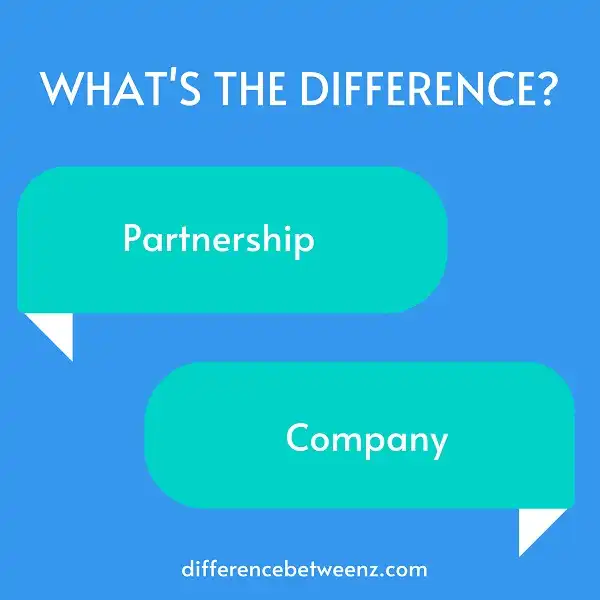There are many different business structures out there and it can be difficult to determine which is the best fit for your company. This blog post will discuss the differences between a partnership and a company. Partnerships are often used by small businesses, while companies are more common among larger businesses. The benefits and drawbacks of each structure will be explored in depth. In the end, you should be able to make an informed decision about which business structure is right for you.
What is Partnership?
A partnership is a business structure in which two or more individuals share ownership of a company. Partnerships are relatively easy to form and offer several benefits, including the following:
– Partnership income is passed through to the partners and taxed at their individual tax rates, rather than being subject to corporate tax.
– Partnership structures can be flexible, allowing partners to tailor the management and profit-sharing arrangements to suit their needs.
– Partnerships can provide access to a larger pool of capital, as each partner can contribute funds or assets to the business.
Partnership structures also have some drawbacks, including the following:
– Partners are personally liable for the debts and obligations of the business. This means that creditors can go after the personal assets of partners if the business is unable to pay its debts.
– Partnership agreements can be complex, and disagreements between partners can often lead to legal disputes.
– If one partner dies or leaves the business, the partnership may need to be dissolved, which can be a costly and time-consuming process.
What is a Company?
A company is a type of business structure that is owned by shareholders. The shareholders elect a board of directors to oversee the company’s operations, and the board hires a CEO to run the day-to-day operations. The Company structure offers several benefits, including limited liability for the shareholders and the ability to raise capital through the sale of shares. Company structures are common among large businesses, but they can also be used by small businesses. The key disadvantage of a Company structure is that it can be difficult to make decisions since there are multiple layers of management. Another disadvantage is that the shareholders may have difficulty controlling the company if they do not own a majority of the shares.
Differences between Partnership and a Company
Partnership and company are two different business structures with their own unique advantages and disadvantages. The biggest difference between the two is that a partnership is composed of two or more individuals, while a company is a legal entity separate from its owners.
- This distinction has a few important implications. First, partnerships are generally less complex and easier to set up than companies. Second, partners have joint liability for the debts and obligations of the business, meaning that each partner is individually responsible for the actions of the other partners.
- This can be an advantage or a disadvantage, depending on the financial stability of the partners. Finally, partners tend to have more control over the business than shareholders in a company.
- Partners can make decisions without consulting with outside parties, which can make decision-making quicker and simpler. On the other hand, companies often have more resources and can therefore take on larger projects than partnerships. When choosing between these two business structures, it is important to consider the unique benefits and drawbacks of each one.
Conclusion
The distinctions between a partnership and a company are important to understand when making the decision of what type of entity you want to form. A partnership is more flexible but also has less limited liability, while a company provides more formalities and protection for its owners but can be less advantageous for tax purposes. It’s important to consult with an attorney versed in business law to get all the facts and make the best decision for your specific situation.


